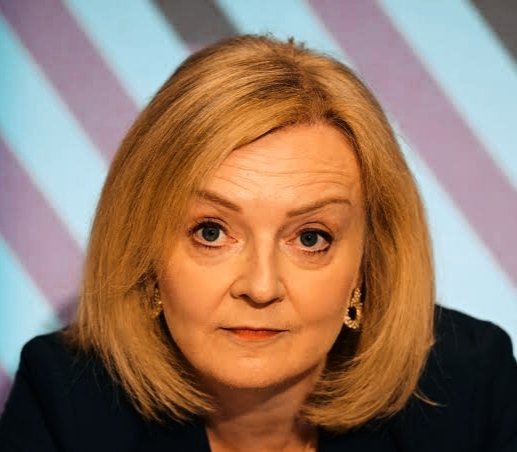In this article, we will delve into the remarkable career and financial journey of Liz Truss, the former Prime Minister of the United Kingdom. We will explore her early life, professional background, political career, real estate holdings, net worth, and her brief yet impactful tenure as the country’s leader.
Early Life and Education
Liz Truss was born on July 26, 1975, in Oxford. She embarked on her journey to success by attending a public school before enrolling at Merton College in Oxford to study philosophy, politics, and economics, where she earned a second-class diploma in 1996.
From Shell to Politics
After college, Truss joined Shell as a commercial manager, subsequently obtaining her management accounting certification. She then transitioned to Cable & Wireless in 2000, taking on the role of economics director. However, in 2005, she made a pivotal decision to leave the corporate world and pursue a career in politics.
Early Political Struggles
Truss’s initial attempts to secure a seat in the House of Commons were met with disappointment. She faced defeat in the general elections in Hemsworth in 2001 and Calder Valley in 2005. Nonetheless, in 2008, she found her footing as deputy director of Reform, a research organization advocating for free markets and public sector reform.
Political Ascent
The turning point in Liz Truss’s political career came in 2010 when she was elected as the Member of Parliament (MP) for South West Norfolk. Her journey continued as she was appointed by Michael Gove in 2012 as the Parliamentary Under-Secretary of State for Education and Childcare, where she oversaw crucial areas like curriculum reform and early childhood education.
Secretary of State Roles
In 2014, Truss assumed the position of Secretary of State for Environment, Food, and Rural Affairs, succeeding Owen Paterson. In this role, she oversaw agricultural policies, food production, animal welfare, flood management, and climate change initiatives. During the 2016 referendum, she supported the cause of Britain’s exit from the European Union.
A Pioneering Role
Liz Truss broke new ground when she joined Theresa May’s cabinet in 2016 as the Secretary of State for Justice and Lord Chancellor. In a role that had existed for over a thousand years, she was the first woman to hold this position. Her responsibilities included overseeing the legal assistance program, probation services, courts, and prisons.

Challenges and Controversies
However, her tenure as Justice Secretary was not without its challenges. Truss faced criticism from judges and attorneys for her handling of the position, particularly in the aftermath of a High Court ruling that Parliament needed to authorize the triggering of Article 50. She also encountered opposition for her proposal to prohibit convicts from acquiring books and her struggles to address issues within the prison system.
Shift to Chief Secretary to the Treasury
In 2017, following Theresa May’s loss of a parliamentary majority in a snap general election, Liz Truss was demoted to the position of Chief Secretary to the Treasury, working under Chancellor Philip Hammond. In this role, she oversaw devolution, infrastructure investment, public sector salaries, and public expenditure.
International Trade and Equality
Truss made a significant move in 2019 when she joined Boris Johnson’s cabinet as the Secretary of State for International Trade and President of the Board of Trade. Her role extended beyond trade agreements, as she was also appointed Minister for Women and Equalities. Truss led negotiations to establish new trade agreements with nations outside of the EU and championed legislation to advance equal opportunity and gender equality.
Diplomacy and Foreign Affairs
Liz Truss was chosen to serve as the secretary of state for foreign, commonwealth, and development affairs following Dominic Raab’s departure as foreign secretary. In order to offset China’s expanding influence, she was instrumental in strengthening diplomatic connections between the UK and other countries, notably in the Indo-Pacific area. She was a fervent advocate for democracy, human rights, and the rule of law everywhere.
From Foreign Secretary to Prime Minister
Liz Truss’ political career reached its apex when she defeated Rishi Sunak in the 2022 election and was chosen as the Conservative Party’s Leader as well as Prime Minister of the United Kingdom. Nevertheless, she only held the position for a short period of time since on October 2021, 2022, she resigned after receiving a vote of no confidence. She did, however, continue to hold a seat in the assembly until the subsequent general election.
Real Estate Holdings
The fact that Liz Truss works in politics does not account for all of her fortune. She has homes in Thetford, which is located in Norfolk, and Greenwich, which is located in southeast London, both of which are in the United Kingdom. The passage of time has resulted in a significant increase in the value of these characteristics.
Net Worth and Salary
Liz Truss’s wealth comes from the accumulation of a number of different sources of income. As a result of her participation in politics, business endeavours, and real estate holdings, it was anticipated that she would have accumulated a net worth of 8.4 million pounds by the end of September 2022. The Independent Parliamentary Standards Authority (IPSA), the body that was responsible for determining her annual salary as prime minister, came to the conclusion that it should be 164,080 pounds. Since she made more money in her role as an MP, her compensation was significantly higher.
Liz Truss’ strong professional background and dedication to significant government roles have aided her in her rise to one of the most prominent politicians in the UK. She has pioneered several firsts in her professions, and it is wonderful that she supports gender equality and human rights.
Truss’s business ventures, real estate holdings, and political career have all added to her wealth despite her brief tenure in office. Although her resignation as premier marked a turning point in her career, she is still South West Norfolk’s representative, therefore her political career is far from over.
Want to read more? visit here Britainobserver.co.uk
